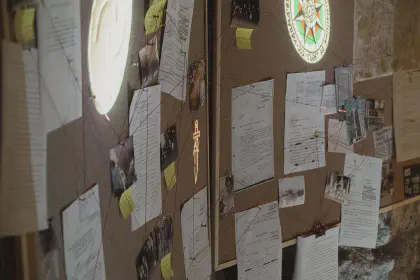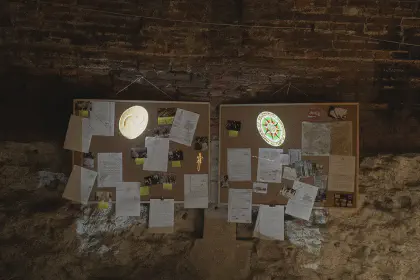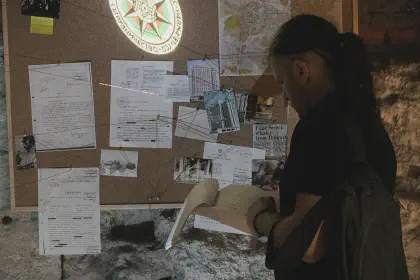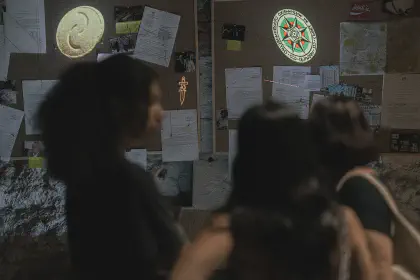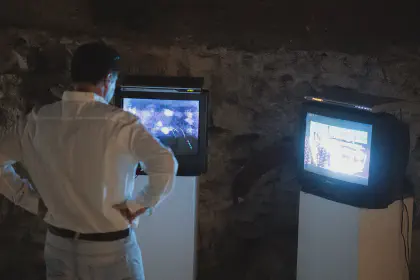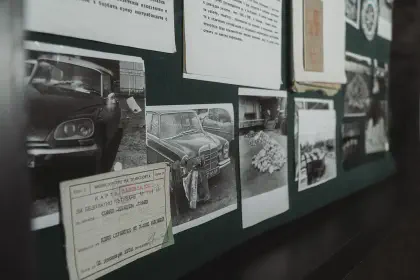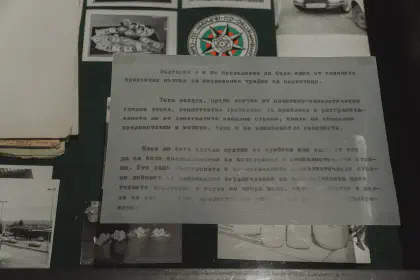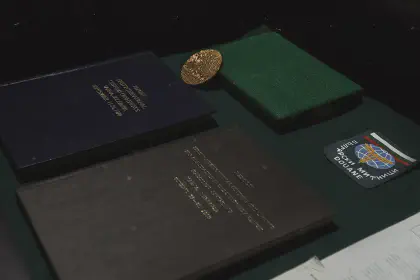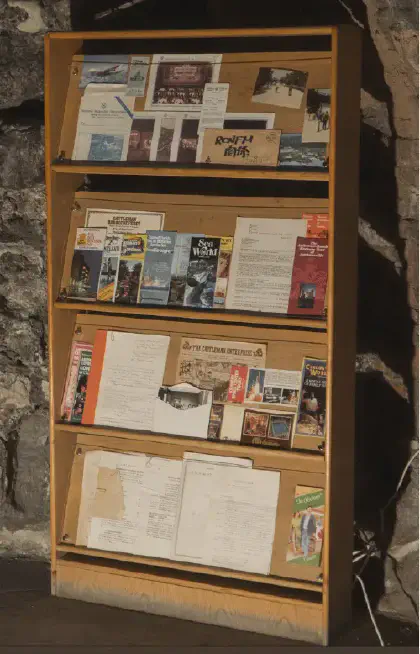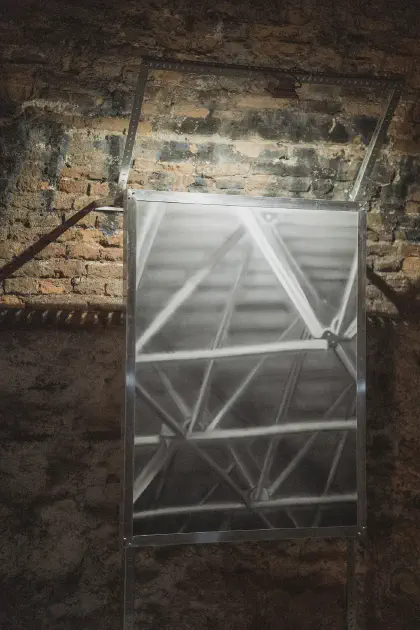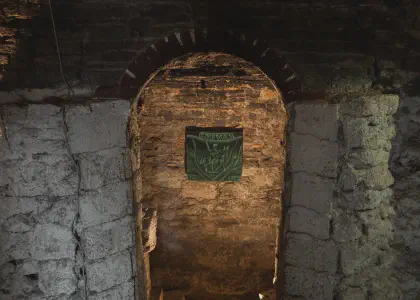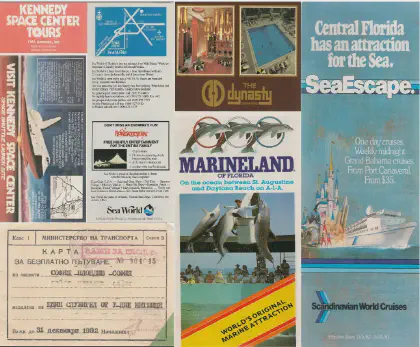Postcards and Contraband
ReBonkers, Varna
07-21.09.2023
collaborators ↓
Aaron Roth
curator ↓
Hristo Kaloyanov
sound design ↓
Yan Lechev
photography ↓
Boris Vasilev
conspiracy map of declassified documents
archival footage
book
duo-channel video installation
“Postcards and Contraband” begins by examining a work archive of the Bulgarian Customs Agency, Directorate for Combating Drug Trafficking from 1975-1985. The service notes, photographs, negatives, summaries and reports found mark part of the routine of the Customs Agency work, such as inspection and regulation of transit, but also the diplomatic image the Customs Agency must maintain to the international community.
The leading suspicion here is that the found archives give only a partial insight into the organized “hidden transit” - a term behind which the communist government of the People’s Republic of Bulgaria concealed the smuggling trade carried out by the State Security through commercial enterprises and organizations. These traces are fragments of a wide-ranging system of customs regulations, trade routes, economic interests, international agreements, and geopolitical particularities. Accompanying official documents, including transcripts of diplomatic encounters, attestations, in-state reports, and international addresses, underscore the hidden nature of the archive. These documents are intended for internal circulation within government departments whose primary business is to detect smuggling and maintain state-regulated ‘hidden transit’. This double diplomacy of concealment is also imprinted in the technique of documenting smuggling activities. They simultaneously expose the hidden cargo, but in other cases facilitate its passage. Thus, the official documents and photographs found on the periphery of the state archive and overlooked by the institutions of memory exist as a negative image of history.
Archaeography is the technique through which the negative image of history is to be revealed in the present. The hidden labour of archaeography is in marking and tracing the unexplained or set-aside traces of memory that maintain their signifying relation to the present. Rather than reaffirming the static nature of state memory, archaeography seeks to reconcile the implicit crisis of the present with the collapse of contemporary memory institutions.
The contraband that should remain hidden by design, and the organization behind it, remain only partially captured to this day. Could these testimonies, then, as the postcard is a well-known and well-researched artifact of ephemeral intimately personal memory, reveal what has become of state memory? Hence, “Postcards and Contraband” traces various scars of both the border, its customs and passing goods, and the memory that the archival image transits, as active agency in the present.
Copies of the accompanying book, designed by Zahary Dimitrov can be purchased at: The Kopy Shop
Supporting events
Talk with the head of drug smuggling prevention in the Bulgarian Customs Agency
Coverage
Bulgarian Telegraph Agency, Bulgarian National Radio, Culture News, Parallel43, News Paper Utro
The project was supported by Varna’s Municipal Culture Fund and ReBonkers, Varna.
